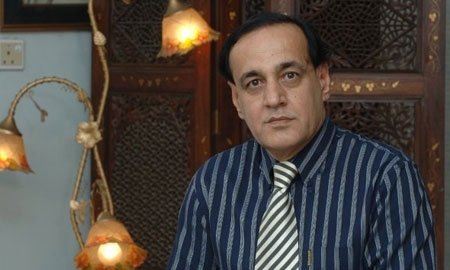The first of the UN’s 17 Sustainable Development Goals is eradicating extreme poverty for all people everywhere by 2030. Pakistan’s progress on SDG1 has been steady, despite a setback in FY20 due to Covid-19. The risk to steadiness lies in the current inflation.
Poverty refers to the lack of means necessary to meet basic needs such as food, clothing, and shelter. Relative poverty takes into consideration individual social and economic status compared to the rest of society.
It means a lack of capacity to participate effectively in society. It means not having enough to feed and clothe a family, not having a school or clinic to go to; not having the land on which to grow one’s food or a job to earn a living.
It means insecurity, and powerlessness. It means susceptibility to violence, and it often implies living in marginal or fragile environments, without access to clean water or sanitation. Poverty also encompasses low levels of health and education, poor access to clean water and sanitation, inadequate physical security, lack of voice, and insufficient capacity and opportunity to better one’s life.
It is a condition characterized by severe deprivation of basic human needs and access to services. Robert McNamara, the former president of the World Bank, described absolute or extreme poverty as a condition so limited by malnutrition, illiteracy, disease, squalid surroundings, high infant mortality, and low life expectancy as being beneath any reasonable definition of human decency.
Poverty is an inequitable social relationship, experienced as social exclusion, dependency, and diminished capacity to participate, or to develop meaningful connections with other people in society.
Social scientists and economists agree that one method for reducing existing poverty is to encourage the creation of opportunities, be it in the form of new micro-entrepreneurship or through the potential of new employment. However, the prospect of new enterprises and foreign investment is lost because of inefficient institutions, corruption, the weak rule of law, and excessive bureaucratic burdens.
Improving human capital, in the form of health, is essential for economic growth. According to most economists associated with the health sector, we do not need large investments to gain this additional factor.
We must not forget that better health among children, particularly those studying at the primary and secondary levels has crucial relevance in the equation for creating human capital. Education is an important determinant of economic growth and reduction of poverty. Any disruption in that process can harm the creation of physical capital. This is visible in many countries in Africa and Latin America and certain areas of South Asia.
While we take necessary steps to the reduction of poverty, we also need to remember that increases in employment without productivity increases might lead to a rise in the number of working poor. This is why some economists are now underlining that the reduction of poverty must also in parallel take precautions about promoting the creation of quality and not just quantity in labor market policies.
The rise of man, therefore, lies in the eradication of poverty. Yet eradicating poverty is difficult because we do not have the courage and the patience of the likes of Abdul Sattar Edhi and Mother Teresa, who spent their entire life helping the needy and empowering them to live with dignity.
Poverty is rising in this current period of inflation, growth crashing, and unemployment rising fast. People who were not poor a year ago but close to the poverty line are becoming poor. These include low-income households. The budgets of middle-income households are also getting lower each day.
Although reducing or eradicating poverty is far more important than measuring poverty, monitoring the poverty situation is also essential for the attainment of poverty goals.







